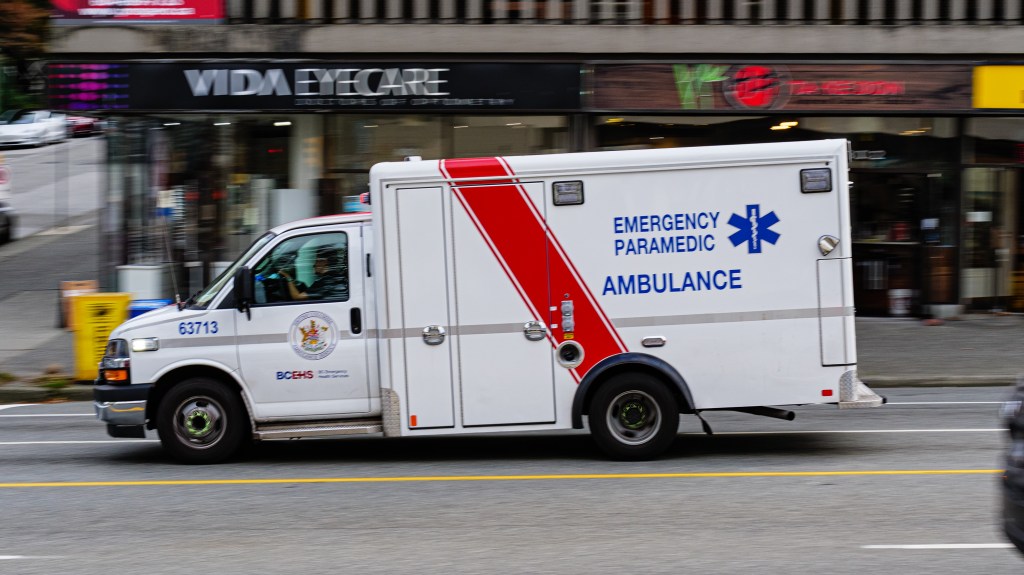The government-appointed independent investigator into racist practices in the British Columbia health care system has told VICE News that her report will reveal disturbing new incidents of racism against Indigenous peoples.
This July, lawyer Mary Ellen Turpel-Lafond was tasked by the provincial Ministry of Health to investigate the extent of racial stereotyping by health care workers against Indigenous patients, after authorities were made aware of a racist game played by staff in emergency rooms. That game involved doctors and nurses guessing blood alcohol levels of patients, particularly those who were Indigenous.
Videos by VICE
Now, as her investigation nears completion, Turpel-Lafond told VICE News that those games were just the tip of the iceberg—for decades, Indigenous people of all ages have experienced discrimination when seeking health care in B.C., and that racial stereotypes are perpetrated at all levels of the health care system, she said.
“Indigenous people are clearly nervous about seeking urgent care,” Turpel-Lafond said. “The review points to a very serious public health concern that Indigenous people may not be getting the care they need because they feel like the system won’t respond.”
As part of the investigation, Turpel-Lafond’s team launched two surveys, a dedicated phone line, and an email address for Indigenous peoples and health care workers to report racist incidents. The team was inundated with responses, receiving over 10,000 within three months.
“People have been reporting to us their experiences dealing with racism in the B.C. health system over a wide range of time, from as far back as several decades ago, with regard to how they were treated at Indian hospitals and in residential schools, until as recent as just this month,” said Turpel-Lafond.
Discrimination against Indigenous peoples is “a multi-headed beast that appears to be driven by a mindset mired in stereotypical views about Indigenous people: that they are to blame for their health issues, that they’re of less value,” she said.
An overarching stereotype in Turpel-Lafond’s finding is that health care providers see Indigenous peoples seeking medical attention as inebriated or looking for drugs, rather than patients deserving care.
This type of profiling is prevalent in settings where patients are arguably at their most vulnerable: emergency rooms and urgent care centres.
Turpel-Lafond said instances of racial stereotyping were reported more often in places where Indigenous peoples are forced to seek non-emergency care in emergency rooms because of a lack of primary care options in Indigenous communities, rather than parts of the province where they have regular access to family doctors or primary care.
“Indigenous people and First Nations have less access to primary care and family doctors (than their white counterparts) and therefore tend to rely on urgent care… The point of intersection for health care is an emergency centre and that can be unsafe,” she said.
Just how unsafe Indigenous people can be at the hands Canadian health care workers was recently demonstrated by the death of Joyce Echaquan—a woman who broadcast the final moments of her life at a Quebec hospital, while two nurses uttered racial slurs at her.
The ripple effects of that story were felt across Canada, and in B.C. it led to more people reaching out to Turpel-Lafond to share their own experiences.
One safeguard that Indigenous peoples have relied on when seeking emergency care is the ability to bring along a loved one to advocate for them in case of racial stereotyping, according to Dominique Jacobs, a representative of the nonprofit Support Network for Indigenous Women and Women of Colour (SNIWWOC) in B.C.
“We were receiving all these stories from women during our community dinners hosted once a month. So we started a peer support program, getting white people to accompany BIPOC to health care facilities to provide safety and accountability,” said Jacobs.
That program had to be halted since COVID-19 pandemic restrictions took effect and patients were no longer allowed to bring others with them to medical centres.
After that form of protection became unavailable, Turpel-Lafond said more and more Indigenous peoples are either actively refusing to get the care they need or “they’re discharging themselves without medical consent after a negative encounter with staff.”
“Racism isn’t just hurt feelings,” said Turpel-Lafond. “It can cause you not to get the care you need and shorten your life.”
Its effects are most severely felt by Indigenous women and other women of colour, said Jacobs.
Since its foundation, members of the support network have consistently heard from Indigenous women who said doctors refused to prescribe them pain medication for injuries such as fractures and sprains, working under the assumption that the patients were addicts who would abuse pain medication.
New mothers who are racialized reported physicians yelling at them about their insurance coverage while they were still in labour. Many of the women also said doctors neglected to offer them pain management solutions during postpartum recovery check-ins.
Since Turpel-Lafond’s investigation became public knowledge, Jacobs said the support network got involved and offered recommendations.
“We want to see anti-racism and implicit bias training built into the system,” she said. “We want to see disciplinary action like fines, up to and including loss of licence to practice—because if you cannot be somebody who cares for everybody the same, then why are you working in health care?”
For her part, Turpel-Lafond says her recommendations to the province—which is currently in the middle of an election campaign—will be based on key themes of education and accountability.
The most important outcome of this investigation is for health care workers to realize the existence of systemic racism, hold their own biases to the mirror, and stop perpetuating harmful racist stereotypes, she said.
“The next is dealing with it in the workplace through managers, team leaders, and employers sending a strong message that there will be no privileged space to bring those mentalities into health care,” said Turpel-Lafond. “That will be demonstrated with some pretty dramatic action.”
Follow Brishti Basu on Twitter.






